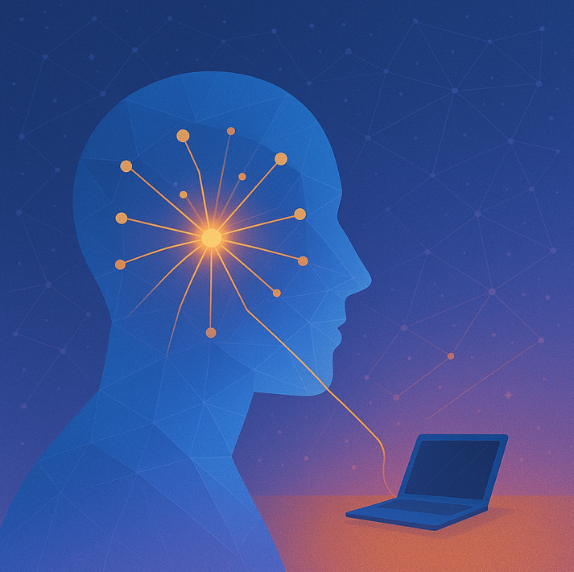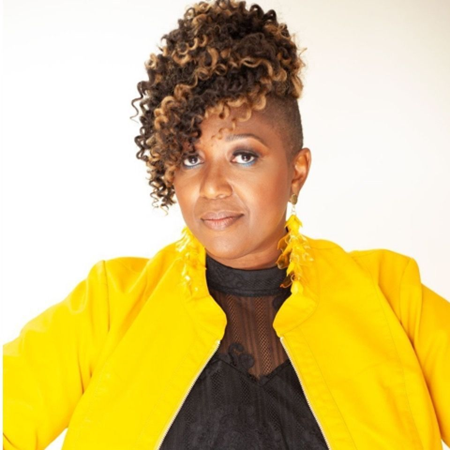
Teammate or Threat? Rewriting the AI Narrative for Good
In today’s rapidly evolving digital landscape, artificial intelligence (AI) is reshaping industries, workflows, and the future of work itself. At Haygor Instrument, we’re exploring how this technology can enhance operations across the board, from improving safety in hazardous environments to boosting efficiency in daily tasks. We sat down with Loretta Williams Gurnell, founder and CEO of the SuperGirls Shine Foundation, to hear her inspiring perspective on AI’s potential. Loretta shares how her nonprofit is using AI to empower young girls in STEM, streamline internal processes, and foster ethical, human-centered innovation. Whether you're navigating AI integration in a technical field or just getting started, this conversation offers practical insights, thoughtful reflections, and a powerful reminder that people drive innovation, not machines.

Loretta Williams Gurnell is the founder and CEO of the SuperGirls Shine Foundation (SGSF), a Houston-based nonprofit focused on developing workforce, career, and STEM skills in untapped talent, specifically young girls of color. With a global impact and a mission rooted in equity and excellence, Loretta’s leadership bridges the gap between community, innovation, and opportunity. In this conversation, she shares her perspective on how artificial intelligence (AI) transforms the future of work, and the lives of the girls she serves.
How has AI already impacted your workflows or decision-making processes?
“AI is helping us stretch every donor dollar further,” Loretta tells us. “Whether it’s from sponsors, grantors, or individual supporters, we want every cent to count.” Sure, they might not have a massive, multi-million-dollar budget, but their impact? It’s global. Loretta shares an example from her work with SuperGirls Shine: they’ve partnered with a STEM school in Kenya, using AI to connect girls across continents. The students are using it to explore each other’s cultures, come up with fun icebreakers, and even design creative ways to collaborate. It’s not just tech for tech’s sake; AI is helping them break barriers, build bridges, and spark real, meaningful connections, no matter where they are in the world.
What is the biggest time or cost-saving benefit you’ve noticed from integrating AI technologies?
Loretta puts it simply: one of the biggest perks of using AI is how it bridges the communication gap across generations. “We’re talking baby boomers to Gen Alpha,” she says. “AI lets us tailor our messaging, whether it’s prepping for a board meeting or crafting the perfect social post.” But it’s not just about working faster. For Loretta’s team, AI also clears up mental bandwidth, making room for creativity, innovation, and being truly present in what they do.
How does AI improve safety and compliance in hazardous environments like oil and gas facilities?
For Loretta, safety isn’t just a checklist, it starts in the mind. Yes, AI can streamline tasks like creating safety manuals, infographics, and training videos—but Loretta emphasizes that its real power goes deeper. It’s a tool for building more inclusive, thoughtful work environments through gender-sensitive messaging, culturally aware content, and accessible design for people with color blindness or language barriers. AI, she says, is helping organizations create spaces where people feel seen, safe, and confident enough to raise their voices.
Can you share a specific example where AI-driven data analysis made a meaningful difference in operations?
SuperGirls Shine runs on data, and Loretta points to a recent decision that highlights just how valuable that is. “When we saw there’d been leadership changes at the venue, we didn’t just roll the dice, we chose to reschedule,” she explains. “That gave our new operations coordinator time to get fully aligned, which led to smoother execution and a more impactful experience for everyone involved.”
Are there any AI-powered tools that have become indispensable in your day-to-day work?
Loretta admits she’s not the most tech-savvy person on the team—but that hasn’t stopped her from leaning into AI-powered tools like ChatGPT, Copilot, and Canva. “Canva’s been a game-changer for quickly designing flyers and templates,” she says. “It frees us up to focus on what really matters: creating impact.” Her team also taps into data tools like Tableau to transform complex info into visuals and reports that actually resonate.
How do you see AI enhancing engineering, design, modeling, and simulation processes?
“Human capital is irreplaceable,” Loretta says with conviction. “AI won’t take your job—but refusing to learn it just might.” The future belongs to those who see AI as a teammate, not a threat. Embracing it means working smarter, adapting faster, and staying one step ahead. The real magic happens when you use it with purpose—to elevate your skills, amplify your impact, and unlock your full potential.
How has AI changed the expectations for technical skills in the workforce?
“It’s less about changing and more about enhancing,” Loretta explains. “AI helps you level up from where you already are—building on your education, your experience, your foundation.” She compares it to how a child grows: “You start with milk, then move to solid food. It’s the same with professionals—you grow by adding on, not starting over.”
AI isn’t here to replace your skills; it’s here to elevate them.
How can AI help companies like yours better understand customer pain points or market trends?
It all starts with knowing your mission, your KPIs, and, most importantly, the people you serve,” Loretta says. At SuperGirls Shine Foundation, that means supporting a vulnerable but high-potential population. “AI helps us connect the dots, collect feedback, spot the gaps, and fine-tune our programs so we can truly meet the needs of our talent,” she explains. For her team, it’s not about chasing quick wins, it’s about building long-term impact and sustainable change.
How are predictive analytics helping you anticipate market shifts or demand patterns?
Loretta doesn’t just look at the numbers, she lets them fuel the mission. “By 2043, the median net worth of middle-class Black families could fall to just $473, and $1,000 for Hispanic families,” she says. “That’s not just a statistic, it’s a wake-up call.” It’s why SuperGirls Shine is all in on STEM. These skills aren’t optional, they’re essential. They unlock access, create opportunity, and build the foundation for generational wealth. “If we want to change the future,” Loretta says, “we have to start by equipping the next generation with tools that truly move the needle.”
How do you balance trust in AI versus human oversight?
Building trust in AI is a process, much like any meaningful relationship. Loretta likens it to a courtship: “You don’t dive into a serious commitment right away.” Instead, she recommends starting small. Test AI on low-risk tasks to get a feel for how it works, then gradually build familiarity and confidence. “Make it your ally, not your crutch,” she advises. Most importantly, lead with integrity. AI will mirror the intent and values of the person using it so ethical use starts with the user.
How are you ensuring AI is being used ethically in your organization?
For Loretta, it all begins with hiring. “We don’t hire people just to use AI—we hire people to advance the mission,” she explains. The priority is bringing in individuals who align with the organization’s values and vision. When that foundation is strong, AI becomes a tool that supports ethical, inclusive, and purpose-driven work. By focusing on mindset and mission from the start, organizations can safeguard their voice and ensure that any technology they use authentically reflects who they are and what they stand for.
What are your concerns about transparency or bias in AI decision-making?
Speaking from her experience as a Black woman, Loretta voices a deep concern about bias in AI systems. “My concern is that AI systems often reflect the biases of the people who build them,” she explains. Without diverse, culturally aware development teams, there’s a real risk of these tools reinforcing harmful stereotypes or leaving entire communities out of the equation. That’s why she emphasizes the importance of keeping human oversight, ethics, and inclusivity front and center in AI development— “Because if we’re not intentional, AI won’t be either.”
Final Thoughts
Artificial intelligence is often viewed as a disruptor, but at its core, it’s simply a tool. Its value comes from how we choose to use it. AI can’t replace the creativity, intuition, and critical thinking that people bring to the table. Without human direction, it has no real purpose. When used with intention and integrity, AI can enhance the way we work. It can simplify tasks, improve communication, reduce costs, and open doors that once felt out of reach. Most importantly, it’s a tool we can’t afford to overlook. With the right mindset and ethical approach, AI has the potential to support meaningful growth and innovation in any organization.
We would like to thank Loretta for participating in our first interview for a blog. We highly recommend learning more about the SuperGirls Shine Foundation and the incredible work they're doing to empower young girls in STEM—it's truly inspiring.
